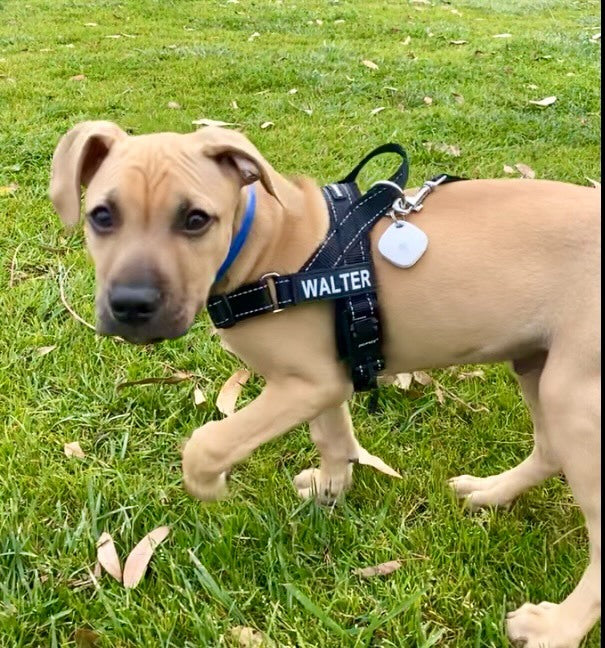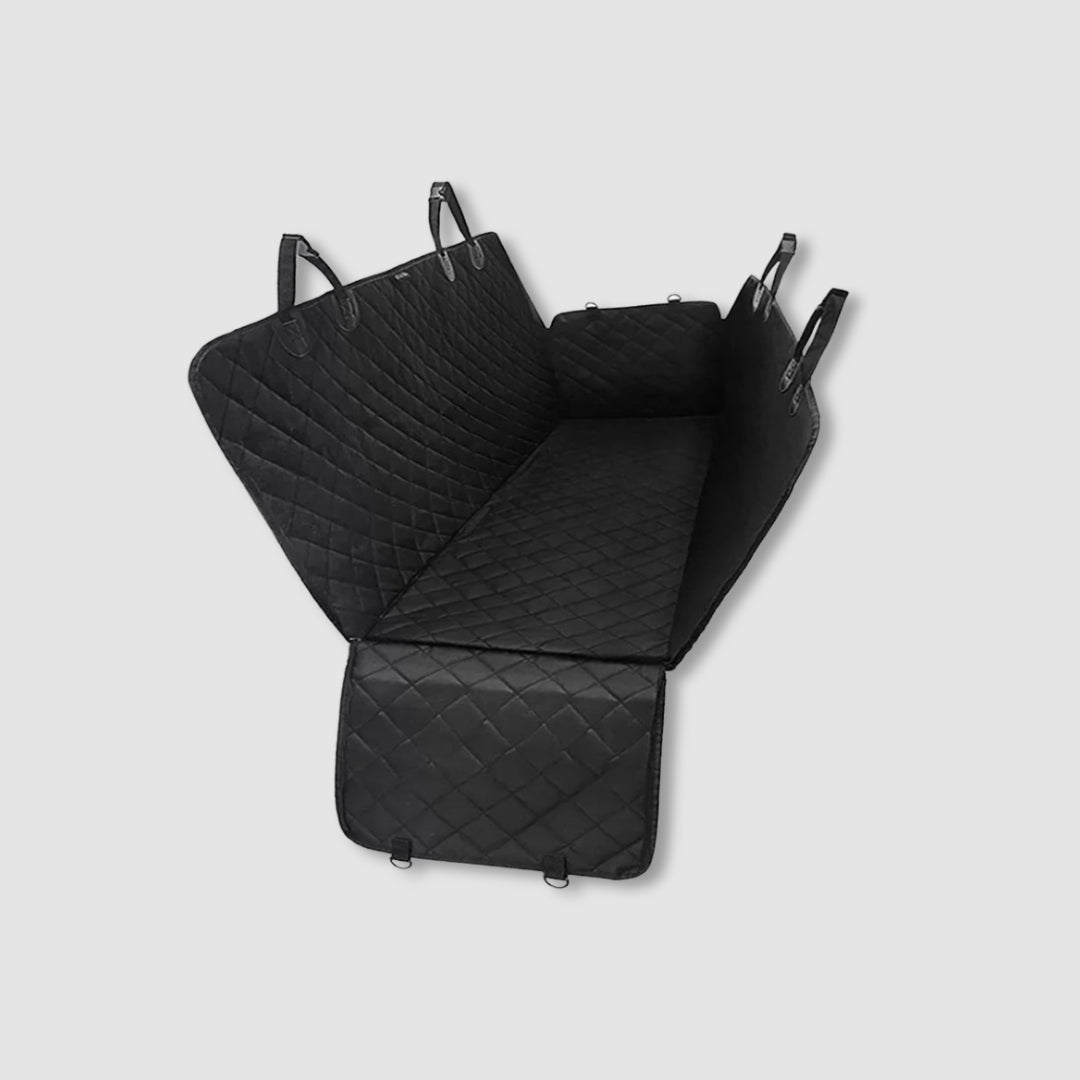Dog Walking Etiquette

Alright, you’ve got me. Dog owners who don’t practise good dog walking etiquette are one of my biggest pet peeves as a fellow dog owner. They’re right up there with the people who don’t pick up after their dog’s poop; both groups really need to have a stern word with themselves about their choices.
With over 5 million dogs calling Australia home, meeting a fellow dog and owner out and about is a usually pleasant experience.
But negative interactions can completely ruin your day. I think almost all of these situations could be avoided if proper dog-walking etiquette was followed. I have put together a set of guidelines to ensure that you and your dog are kept safe and happy when you’re out on your adventures.
The Dos and Don’ts of Dog Walking
If you follow basic dog-walking etiquette, your dog, other dogs, and their owners will have a happier and safer time. Whether you’re in a bustling city, roaming the bush, or bounding along the beach, keep these dos and don'ts in mind.
Do:
• Pick up after your dog.
It is just the right thing to do, and not doing it gives the rest of us a bad reputation. If you’re prone to forgetting the bags, invest in a dog collar, leash, and poop bag set so you know you have the bags attached to the lead. If you’re caught short, wave at a fellow dog owner. Most will be happy to share.
Oh, and carry it with you until you find a bin. Leaving a filled poop bag on the ground, or worse, hanging it from a tree like a stinky bauble, is nearly (but not quite) as bad as not picking it up in the first place.
• Call your dog back if you see someone.
It isn’t just dogs that might react badly to your pooch bounding over; humans or horses might also freak out. Play it safe and recall your dog until you know more about the newcomer.
• Change up your walking routine.
Varied walks provide your dog with more mental stimulation. They also give you a chance to practise different skills with your dog while out on a walk. You could practise with their no-pull harness and take a route that gives them more off-leash sniff time in a bushland area another day.
• Pay attention to your dog.
Walking together is a great bonding time for you both. It isn’t a great opportunity to take a phone call or get some audiobook time. Engage with your dog. They are great listeners. Interacting with your dog means you are more aware of their social cues and can react appropriately to environmental changes, like a new dog appearing.
• Bring treats.
Treats are fantastic positive reinforcement for your dog. Use treats as a reward for skills practise or as part of a game. They will know you have treats, which helps keep your dog focused on you while you are out and about.
• Give other walkers space.
If another walker, human or dog, looks like they are trying to keep a wide berth from you, respect that choice. If, when another dog walker sees you, they put their dog back on the leash, it is best practice to do the same with your furry friend.
But this goes both ways: if all parties are happy to have an introduction and think it will be a positive experience, then it’s time for some sniffing and wagging.
Don’t
• Let your dog run up to another dog.
Letting your dog run up to another dog is terrible manners and potentially dangerous. Do not be that person. Ask the other owner first and pay attention to both dogs' behaviour cues to ensure they are comfortable.
• Only throw them a ball.
Yes, some dogs love it, and yes, some dogs could do it for hours. But any repetitive exercise like that should be restricted. It can be bad for their joints and not very mentally stimulating. Some games of fetch are great but do not rely on it as their only on-walk entertainment.
• Pretend your dog isn’t in heat.
If you have an unspayed dog and she is in heat, take the proper precautions to prevent unplanned puppies. Consider keeping her on the leash and walking her at quieter times to limit the chance of her attracting attention.
• Expect your dog to like every dog they meet.
We don’t like every human. They won’t like every dog. It doesn’t make your dog bad or unfriendly if they would rather not play whenever they meet a new dog.
“But My Dog is Friendly!”
Fur parents can be overly optimistic about their pups. Even the most well-behaved and friendly dogs should be managed carefully.
As someone who has owned a reactive dog, I find it is the worst feeling to watch an off-lead dog bound over to my on-lead dog, knowing that this might be about to go horribly wrong. The other owner is metres away and casually calls across that this is nothing to worry about.
And it might not be. My dog was not reactive to every dog, but she still was not a fan of any dog getting all up in her business. It went well if the owners were handling an introduction, but any stranger invasion would usually get her hackles up.
Manage Your Dog Responsibly
You know your dog best. Like humans, dogs have their personalities. While we can generalise about breeds, as a responsible dog owner, you know what your companion does and does not like.
Dogs are social animals, but a dog that is always happy and friendly with every other dog they meet is rare. It’s great if you have a dog like that, but most aren’t. There can be doggy introverts, extroverts, playful pups, or independent souls who prefer to spend their time with their two-legged friends.
There can be many reasons why your dog needs its social interactions managed. There may be a history behind their nervousness. Or they may have an additional need that makes them wary of newcomers. They might be recovering or training and need to play it safe temporarily.
If any of those situations apply to you, you could have great success with a personalised dog harness or leash that would make it obvious to other dog walkers that your pup won’t appreciate being hustled and bustled by a new dog.
Friends of mine have had a brightly coloured dog harness personalised with “Deaf Dog” so people can more easily tell that their dog should not be approached unexpectedly.
Safe Socialisation is Key
Dogs thrive on canine companionship. There are some great ways to socialise your dog safely, and they will love the opportunity to rough and tumble with their mates.
If you have a puppy, look up puppy play parties. Many dog trainers will organise these for clients, or some vets can put them on for puppies who have had their vaccinations. Puppy play parties are an excellent way for dogs to learn their manners and grow in confidence, as well as a chance for you to meet other dog owners.
Socialising with adult dogs can be more challenging, especially if you have a rescue dog with an unknown past. Slowly build these dogs up to more significant social interactions. Regular walks in public places will help, and positive reinforcement of successful social interactions will build both of your confidences. Slowly introduce them to other dogs, and consider using a dog trainer to help you manage this.
Be the Best Sort of Dog Walker
Walking with your dog is going to be a highlight of your dog’s day, and probably yours, too. By following good dog-walking etiquette, you will ensure that you both have a positive experience (and so will everyone else out on the trail!).

























